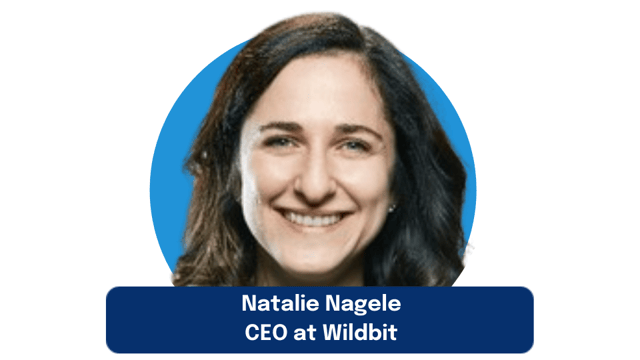The 32-Hour Work Week is Product Management

Natalie Nagele, CEO at Wildbit, shares how a 32-hour work week has helped her company minimize busy work, gain focus, and prioritize high-impact work.
It’s not uncommon for product managers to work 50, 60, or even 70 hours per week. To-dos pile up and speed is of the essence, so work often spills over into nights and even weekends. The extra hours can help finish an urgent project, but often leave people feeling burnt out and unfulfilled.
18 months ago, Natalie Nagele, Co-founder and CEO at Wildbit, began an experiment at her company that bucks this trend. Her team started working 32 hours over the course of four days each week.
Natalie says that people gain tremendous satisfaction out of deep focus on meaningful work, not the busy work and distractions that have often fill people’s days. When people say that they work best on the weekend and at night, Natalie says that this is because they can’t focus during the day and can’t accomplish what they want to because of constant distractions.
In his book, Deep Work, Cal Newport argues that the human brain maxes out after four hours of truly meaningful work. This led Natalie to question if cutting out busy work could help her team get more done. Natalie figured that by spending less time at work, people would be able to regroup and clear their minds, cultivate hobbies, spend time with family, and ultimately have more energy during the shorter week.
This experiment began last May, and Natalie had planned for these so-called “summer hours” to be a fad, but she kept extending the experiment because of how much her team’s performance had improved. She says that her team has achieved more during this past 18 months than at any point in the company’s history. People are running into the office on Mondays, eager to work after their mini-vacations.
Making this transition was challenging at first. When the teams first began the 32-hour, 4-day work week, team members were anxious that they weren’t getting enough done. There was also added pressure to get work done on Thursday that might otherwise have been done on Friday. These problems smoothed out over time, however, once the teams realized just how much they were getting done during work hours.
Natalie was able to help her team overcome these hurdles by embracing David Allen’s Getting Things Done framework. This approach entails dumping everything onto a project manager and prioritizing the most important work. Natalie stresses the importance of tackling fewer problems at better quality over opting for quantity without really getting anything done sufficiently.
Crucially, Natalie says that her team is committed to getting work done, and doesn’t hide behind the shorter work week as an excuse to shirk responsibilities. To track the success of the experiment, Natalie looks at what people are doing on Fridays. If people are still working, this is an indication that the team doesn’t have enough bandwidth to accomplish everything it needs to without extending the work week or hiring more people. After all, the business has to be profitable at the end of the day, and if people aren’t confident that they can get high-impact work done, then she knows she’ll have to pivot.
Natalie has also rethought how her company approaches internal communications. She says that asynchronous communication is essential for teams that don’t have a regular 9–5 schedule and for teams spread across different time zones. It also allows people to achieve deep focus without being bothered by notifications all the time.
You’ll learn a lot from this episode about how to achieve deep focus and improve work-life balance.
Here are the highlights:
- What inspired Natalie’s 32-hour work week experiment (3:57)
- Natalie describes the challenges that the company faced when shortening the work week (12:34)
- How Natalie utilizes communication tools such as Slack (15:36)
- Natalie shares techniques for improving focus and productivity (21:34)

Subscribe now!
Get our new reports, case studies, podcasts, articles and events

.png?width=80&name=Untitled%20design%20(1).png)